Reinventing the care model
- On November 30, a general feminist strike will be held for the first time in the Basque Country. The goal is not the same strike, as the feminist movement of the convening Basque Country has declared. Over 30 social and trade union agents want to take advantage of the day of strike to promote popular agreement. 23 agreed claims. The aim is to implement them. Bizitzak Erdigunea, the Feminist Coordinator of the Basque Country, has opted for a Basque public community system that makes possible the collective right to care.
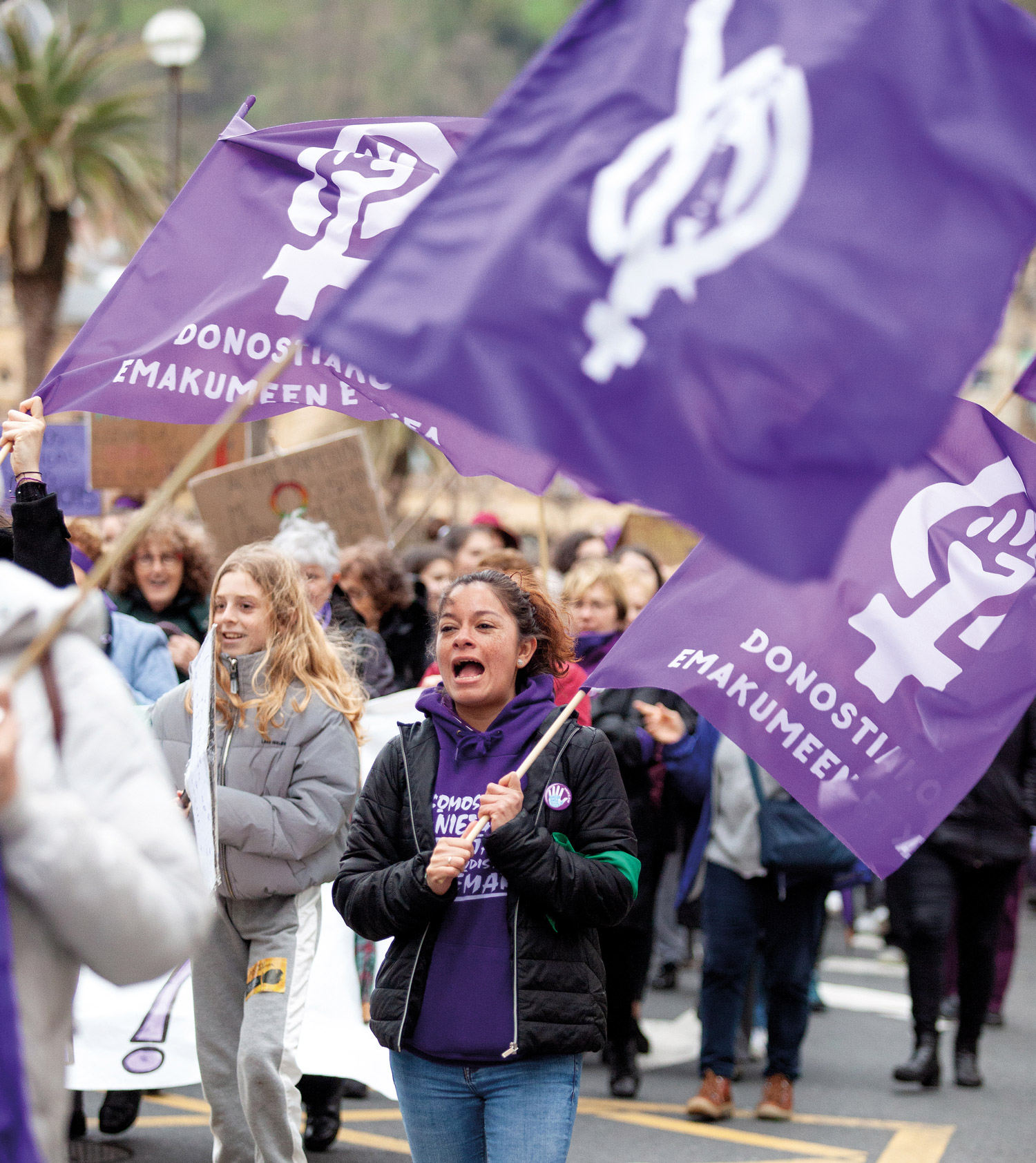
The strike of 30 November was preceded by 8 March 2019. The strike made a special effort to underline surveillance, and another monitoring system was expressly called for. The COVID-19 pandemic paralyzed everything after its digestion and ratings. As with other popular movements, the feminist movement experienced a significant organizational and operational decline. Paradoxically, the pandemic brought to the view of society the idea that surveillance is essential. Thanks to the virus, surveillance was talked about more than ever.
When Pandemia broke out, various agents and members of the feminist movement of Euskal Herria created the Bizitzak Erdigunea Feminist Coordinator to put the issue of care on the agenda. The coordinator interpreted that society was facing a critical moment with at least two senses. On the one hand, there was a risk of increasing the crisis of care for the pandemic and, on the other, it was a unique opportunity to challenge institutions and demand changes from the ground up. It also came to the conclusion that it was a propitious time to trigger a turning point in society, in terms of awareness about care. Thus, in February 2022, in Vitoria-Gasteiz, a few days were held and the Denon Bizitzak Erdigunea process began. The feminist movement considers the path taken as a medium- and long-term process and underlines the ambition to generate a social transition. During the conference, about 90 women from Hego Euskal Herria met for two days and shared the discussion document towards a community public feminist surveillance system.
They approximated a consensual way of understanding care, drew the first axes of a public community care system, identifying demands and emergencies. Also, feminist agents gathered in Vitoria-Gasteiz stressed the need for mobilizations and the specifications of the mobilizations came in autumn. In the assemblies of the countries the need for a popular agreement was agreed on the one hand and a general feminist strike was decided to cover this fact.
The day of the strike was in Hego Euskal Herria. In Ipar Euskal Herria on 17 and 18 November they had talks related to the strike and the surveillance model and on 30 November they will come together to participate in the Donostia demonstration.
The
feminist movement
in Denon Bizitzak Erdigunea explains why they have decided to strike a general feminist. First, "Why a strike?" They answer the question. They do not aim to strike, they will give importance to the work before and after, the strike has been represented as a turning point in the process Lives of All in Center. They announce it won't be the last. With the strike they want to base organization, activation, penetration, interpellation and relationships. They are aware of the contradiction of this strike: 30 November calls for the suspension of employment and monitoring tasks and many will not be able to do so. Some are not entitled to strike, for example, racist women who are in need in homes. This is the most oppressed and precarious surveillance area. Many women, as they do every day, will serve the child, grandfather or sick on 30 November. Under no circumstances can surveillance be dispensed with, even on the day of the strike. Therefore, the organization considers that the A30 has this potential, will help to show that care is essential and under what conditions it is cared for.
Why is it a feminist strike?At the end
of the month they denounce the capitalist, heteropatriarchal, colonialist and racist system. They want to challenge those responsible who are carrying out the privatisation of the surveillance system. They also want to take advantage of the strike to establish alliances with workers in the surveillance sector, especially with the sectors now on strike. They believe that strike can be a way of approaching the feminist movement for workers and that their struggles can take a different dimension. In a way, strike can be an instrument in the process of politicization of caregivers.

The demands for
the revolution of the surveillance system were heard aloud on March 8, 2019. The movement decided that it was necessary to leave the M8 because, among other things, the issue of care could remain on the back of women. Indeed, the feminist movement claims that care is a matter for the whole of society, and that is why they have decided to generalize the strike so that men also feel challenged. The organization explains that a broad understanding of care is developing, so that people feel challenged in this process and feel subject to the strike.
What is the day of the strike?
The most significant morning action will be the bite. The feminist movement wants to take care not to be the usual pickets. It aims to ensure the presence of women and will seek to ensure safe spaces. They want to choose workplaces and symbolic sectors for pickets, aware that they cannot reach all areas.
In the case of the strike, the other great challenge will be to know how to give visibility to workers who are unable to take part in the strike. In different areas of care (nursing homes, home-based staff, etc.) other workers, including women who work at home and have been reasoned, will not be entitled to strike. In 2019, it was proposed to women that they could not strike to hang gowns on the balcony. This year we want to make a leap in this area. Moreover, until the time of the demonstrations, actions will be carried out on the portals of the entities carrying out the privatization of the surveillance system.
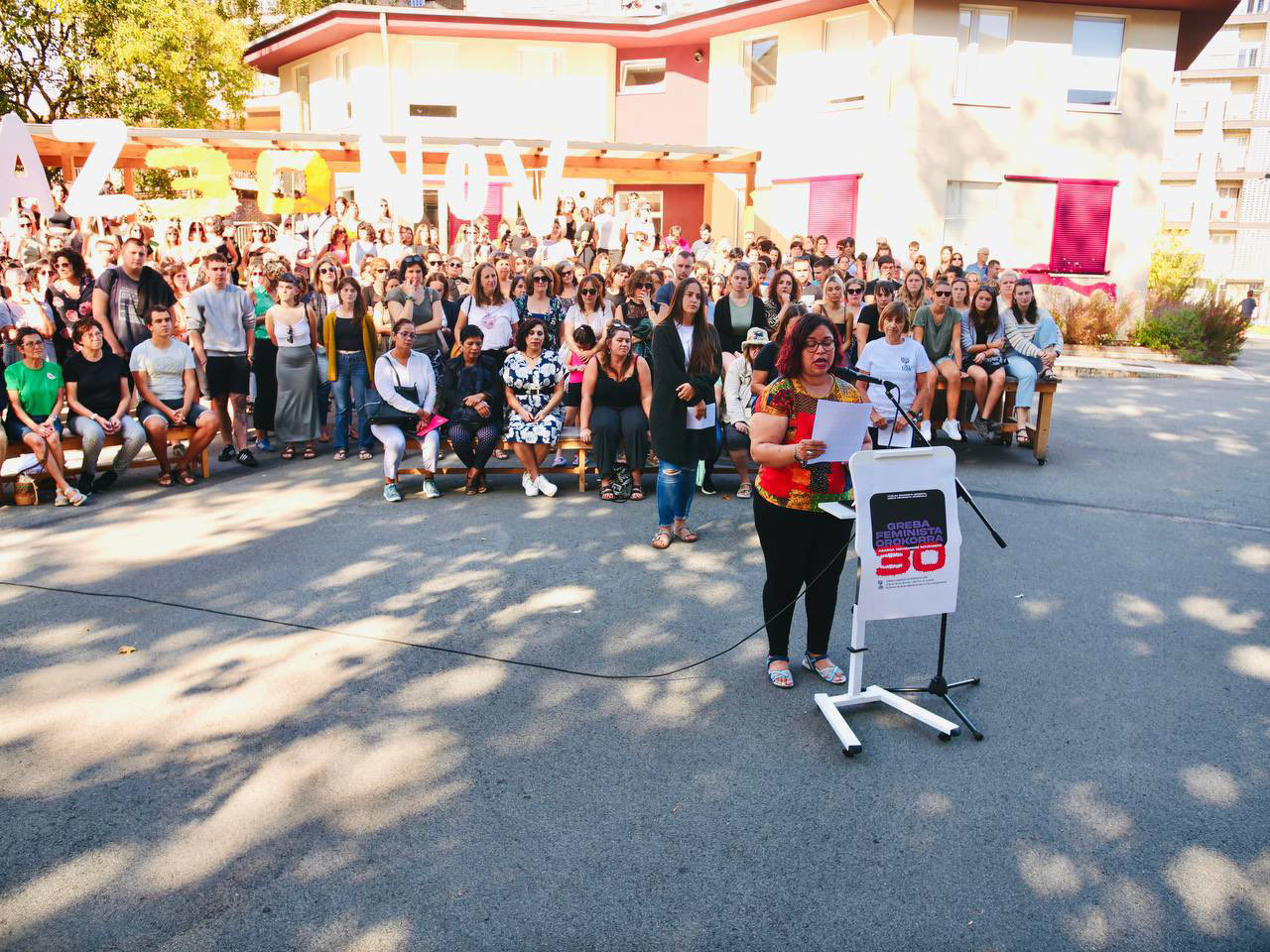
This year, unlike the previous M8, the movement has opted for the decentralization of demonstrations. The four capitals and regional leaders of Hego Euskal Herria will hold demonstrations at the same time. Planned for 17:30-18:00.Se ask
the organizers of the strike what the role of men in the strike day is. They are being asked to take a job strike and to prioritise surveillance. If they do not provide for monitoring, they are proposed to participate in the activities of the day and in the demonstration. The feminist movement has made it clear that the main subjects of the prestrike and the day of strike are women and that in this process the participation of caregivers and women is prioritized. They stress the importance of the leadership of the feminist movement.
----------------------------
"The community should not comply with what administrations do not assume"
Marina Sagastizabal
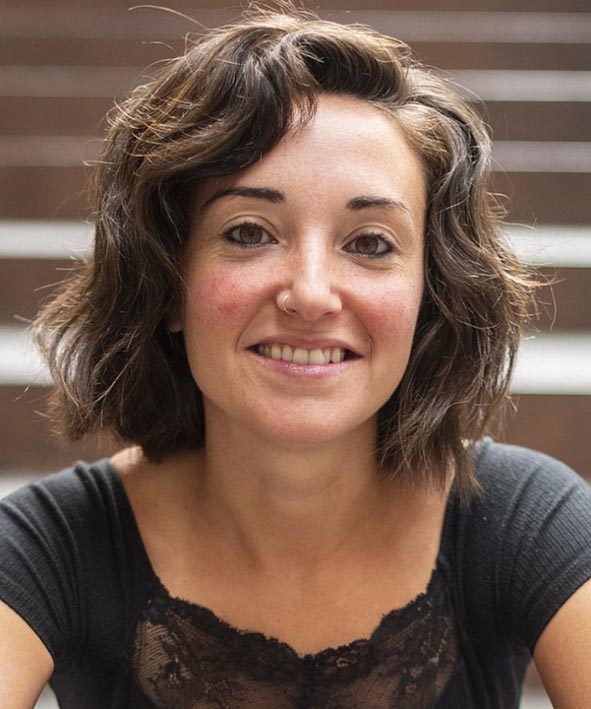
Marina Sagastizabal has helped us discover the main claim of the A30, the concept of public and community surveillance system. Sagastizabal is the author of the book Hiruki, conflictive (Lisipe) and member of the feminist movement.
How do you imagine the public system?
The surveillance system must be public. We have very few services and we want quality public services to be completed, because that guarantees that the working conditions of workers are good and that universality, that is, that we all have the right to care. We regard it as a social right and that is guaranteed by the public.
However, it must be a non-commodification public where business is not an objective. We see that today.
What does the Community mean?
Custody is a collective right. This means that all people, throughout their lives, must offer and receive free and committed surveillance. There should not be a “free” person to perform care tasks.
We must involve ourselves individually, collectively and in the community to ensure care. Own, but also others. The current model is totally individualistic and atomized. We have lost community relations between neighbours and neighbours decades ago. We want
recuperarlos.Tenemos of course the community should not comply with what administrations do not assume. However, we cannot think that a worker comes to perform tasks that we are not going to perform. Some of the works are under the responsibility of each one of them and are freely complied with. Cooperation, mutual support and strengthening of these custodial networks are essential.
The Community also has something to say in this audience. We imagine an open audience where people, workers and the community are going to be served. We need decision-making and participation mechanisms in the public sector.
What risks does the community have?
We are aware that the Community is not harmonious. There are power relations, there is oppression ... Strengthening a feminized community is a great risk. We need mechanisms to cope with oppression and power relations, and in this sense, to ask men to take responsibility is very important, to bear in mind that not caring is a privilege. Men also have to work this privilege, give up and start taking care of it.
We still have a great deal to think about the Community model.
How does the public-community relationship need?Public-community
surveillance should be located, addressing in its entirety the complexity of care, taking into account the different contexts and local situations.
We have started thinking about four areas. First, to promote autonomy and to respond to situations of dependence. We will have to work and tackle issues like addiction and fitness. Secondly, childhood. Overcoming the perspective of adults, being active subjects of care, co-education... We have to work all these
to reas.En third place, surveillance over the course of life: we all have to receive and provide care, and also, that's what we want to do from nontraditional space, or at least from them. We have to think beyond the heteropatriarchal family. For example, we talk about the link, that is, how to legally guarantee the last surveillance networks mutua.Por, the conservation of the soil and territorio.Los human beings, besides being dependent on us, we are eco-dependent and it is essential to take care of rivers, water,
land, animals and our environment. In this respect, we are committed to food sovereignty and agroecology.
People's Agreement
At the beginning of October the popular agreement was presented. The feminist movement has considered the alliance, support and collaboration of socio-union actors necessary. The agreement will be based on the collective right of surveillance and seeks to challenge the Basque and Navarro governments. In the popular agreement the following demands are agreed. Agreements are intended to ensure that these demands are fulfilled.
Short-term claims 1
/ Recognition and guarantee of the universality of dignified care as a right.
2 / Strengthening and development of the public surveillance system.
3 / Completion of privatisation of surveillance services.
4 / Strengthening and development of the home help service.
5 / Suspension of the law on aliens and, in the meantime, regularization of all care personnel.
6 / Universal access to the right of registration.
7 / Elimination of the scheme for domestic residents.
8 / Inclusion of domestic staff in the general employment scheme: Ratify in full International Labour Organization Convention 189.
9 / Provide for domestic workers a remuneration exceeding the minimum wage.
10 / Improving the working conditions of staff in the surveillance sector.
11 / Creation of support networks for caregivers.
12 / Guarantee care times: reduction of working hours without wage reduction.
13 / Ask men to give up the privilege of not caring and to take care of surveillance.
14 / Extension and extension of surveillance permits: Links.
15 / Working transversally care tasks: education, health, work, etc.
16 / Establishing decent pensions for all: Minimum €1,080.
17 / Protection and promotion of agroecology.
18 / Guaranteeing the right to housing: market intervention.
Long-term priorities
19 / Development of the community public care system: requires an important cultural change and requires a cross-sectional treatment at all times (addressing the concept of culture of care and promoting politicization and awareness in care, destroying the heteronuclear family, demanding responsibility from men, promoting co-education and developing a pedagogical model based on care).
20 / End the sexual and racist division of labor.
21 / Development of a popular feminist organization: design of spaces, use of time and transformation of urbanism – community housing, promotion of food sovereignty and transformation of relations between cities and the rural environment.
22 / Fight against racism and institutional violence.
23 / Build new models of popular power and gobernanza.Firmantes Feminist Movement of the Basque Country
·
Pensioners Movement · Charter of Social Rights of the Basque Country · Asociación Cuiemos Araba · Ccoo Mujeres contra la Guerra · Salvation · Ongi Etorri · Refugees · Primera Atención Respiratoria · Ernai · Asociación de Consejo
A decision by the Provincial Council of Álava has left over 150 people without home service, according to EH Bildu. The Navarre Thycna Association has denounced that many immigrant women need to have a room in exchange of 700 euros, domestic staff or an inmate. LAB denounces... [+]
The general feminist strike of November 30 allows us to reflect on the new look and steps taken from the gender perspective in the economy. While the conventional economy only seeks profit, the gender perspective focuses its attention on the life of society and the planet,... [+]
Feminisms have opened deep ancient debates. Among them, the care model and its systemic crisis. Earlier this year, the feminist movement in the Basque Country placed the problem of care among its priorities. The result of the reflection was decided to call for a general strike,... [+]
Conditions, time, consensus… There are many things to consider when calling a general strike. If more is a feminist strike, it is nowhere written what that is, and yet we know how difficult it is to move from the writings to the plaza and from the plazas to the workplaces. But... [+]
Pamplona
(Photos, ARGIA CC BY, S.A.)
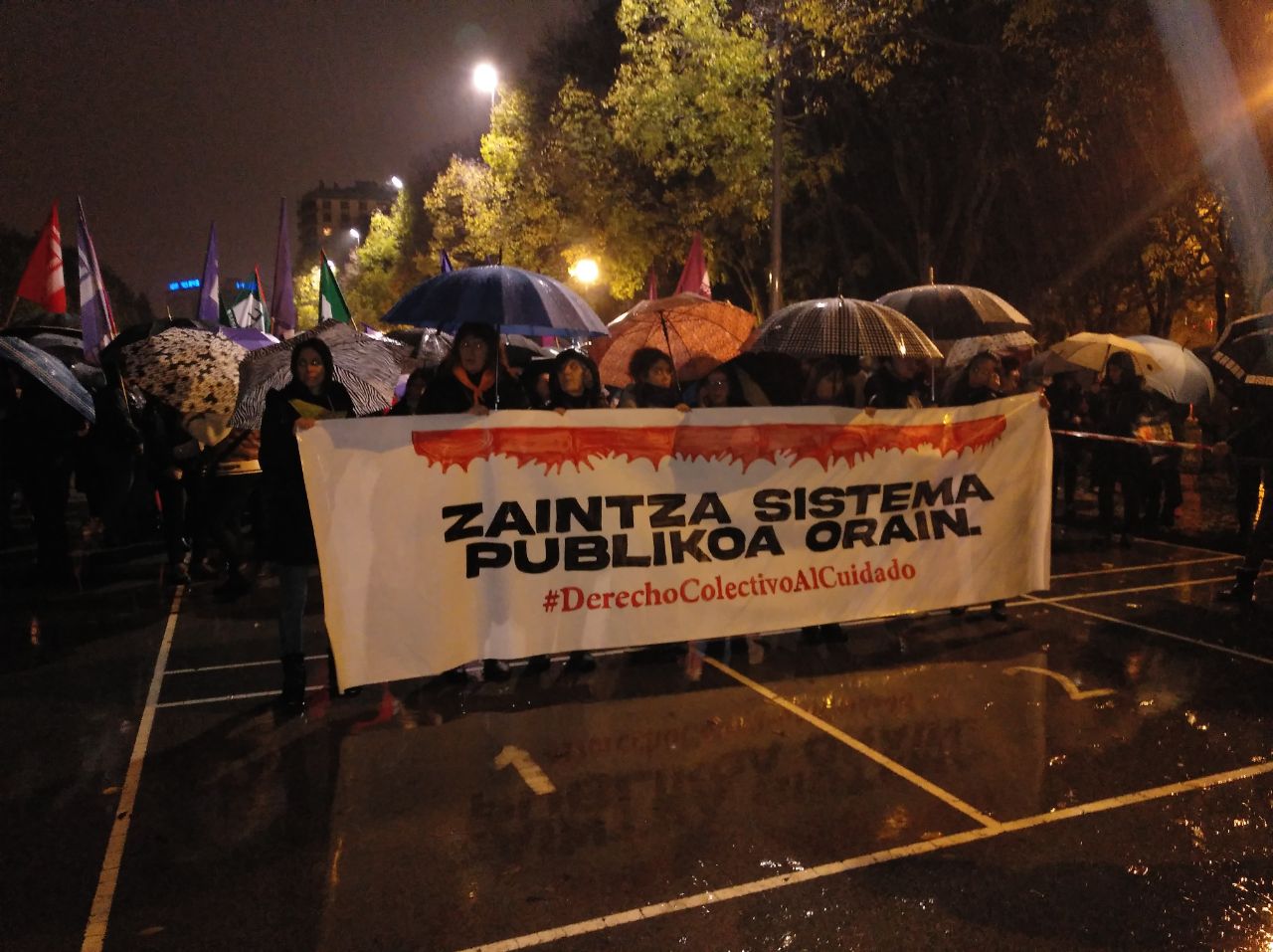
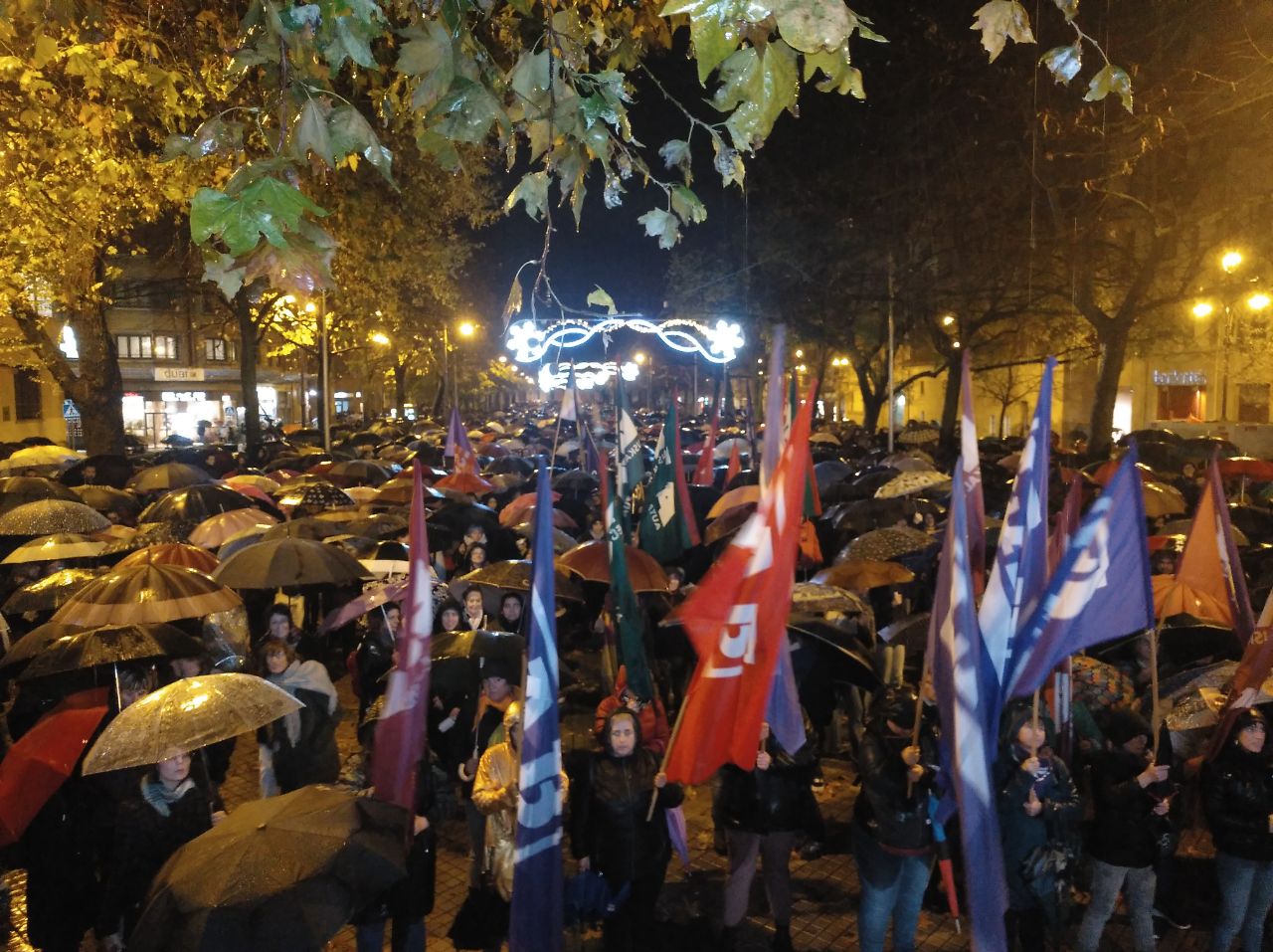
(Photos: Ekin)
.jpg)
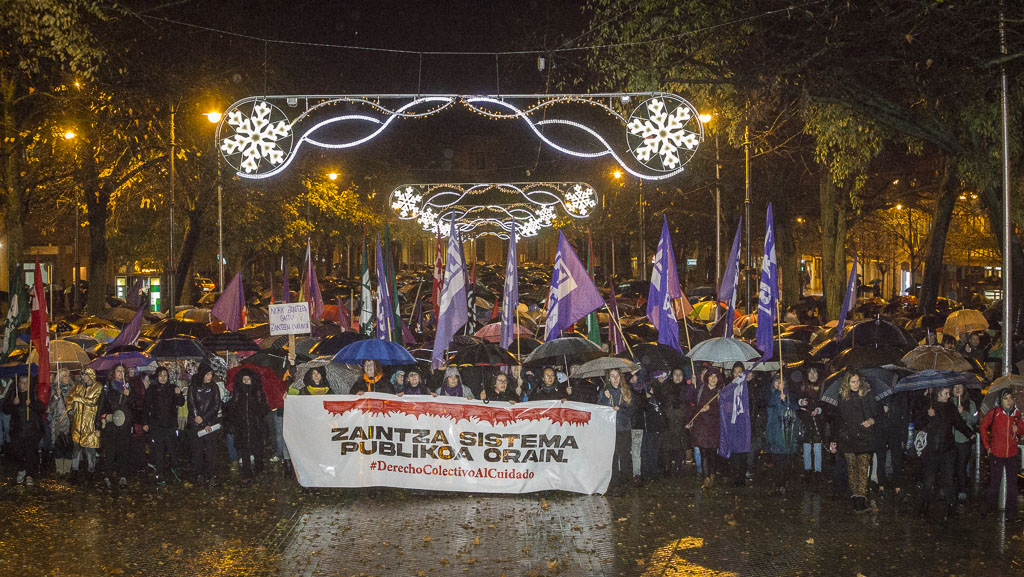
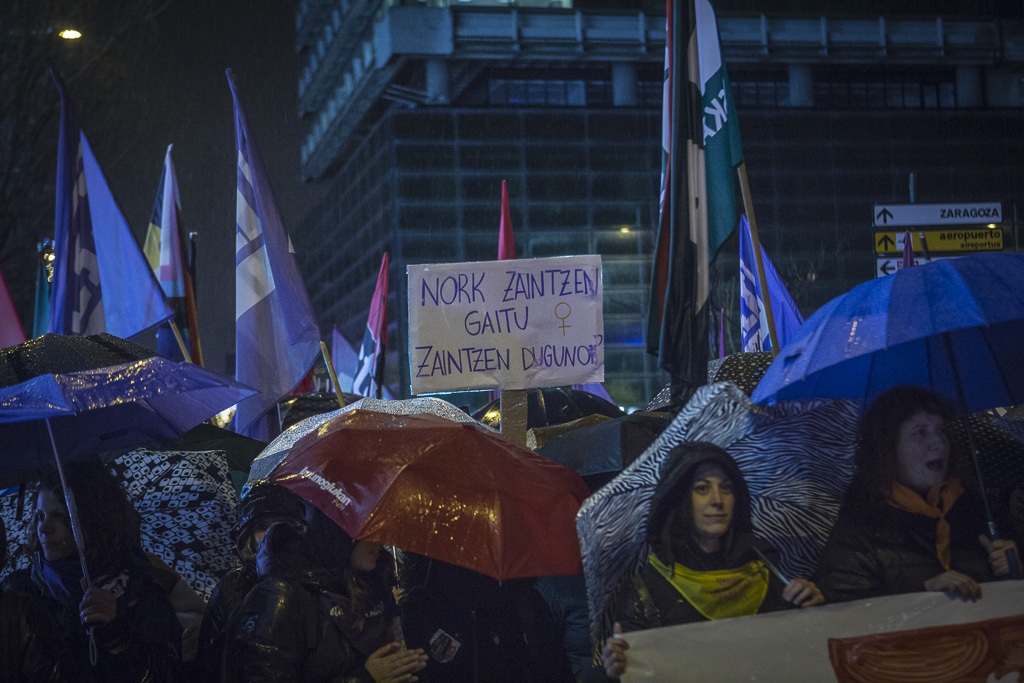
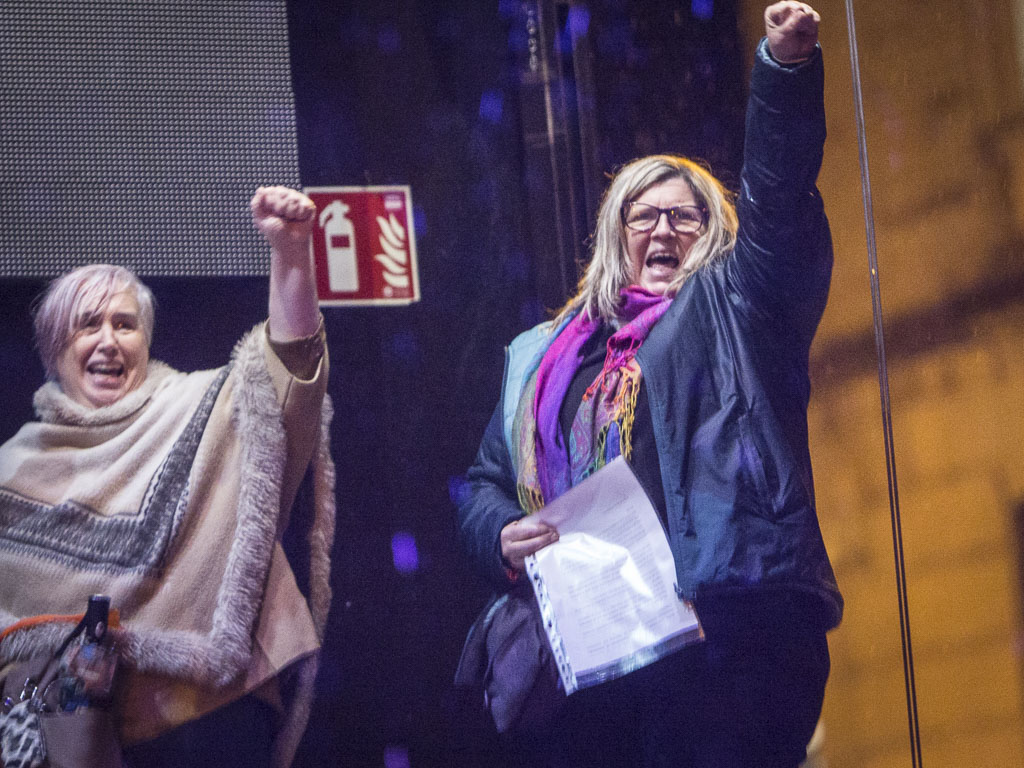
Voice video.
Vitoria (via Hala Bedi)









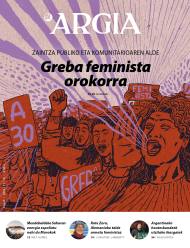

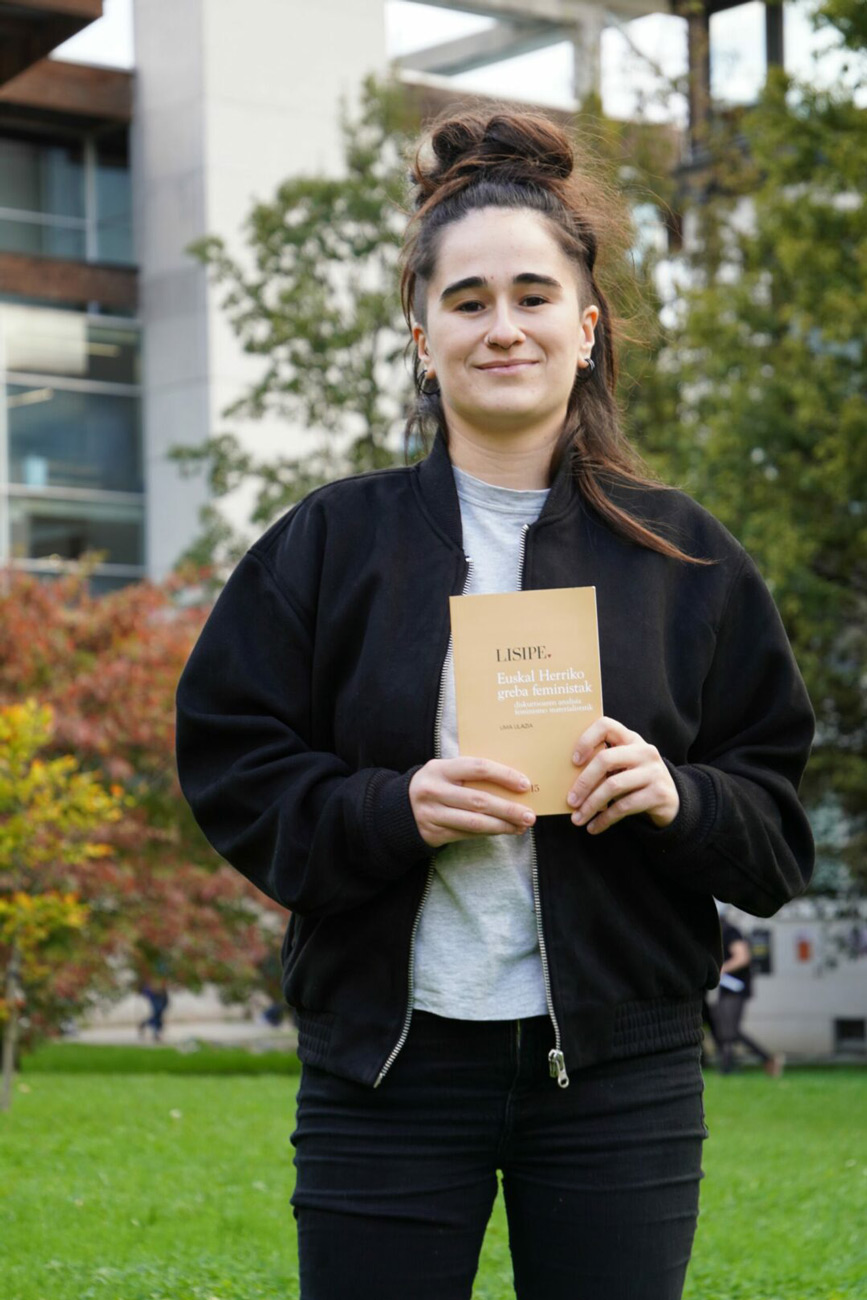
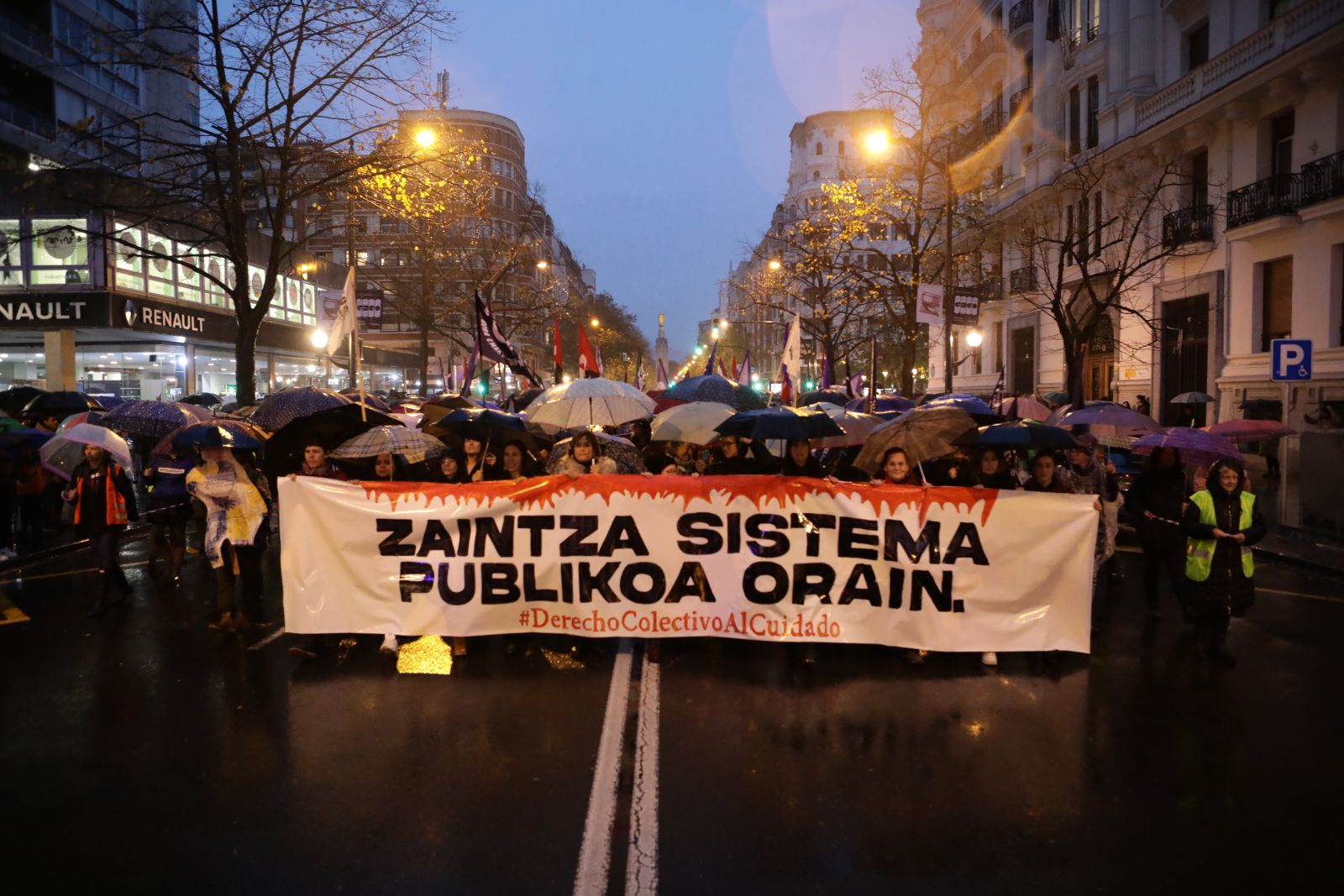





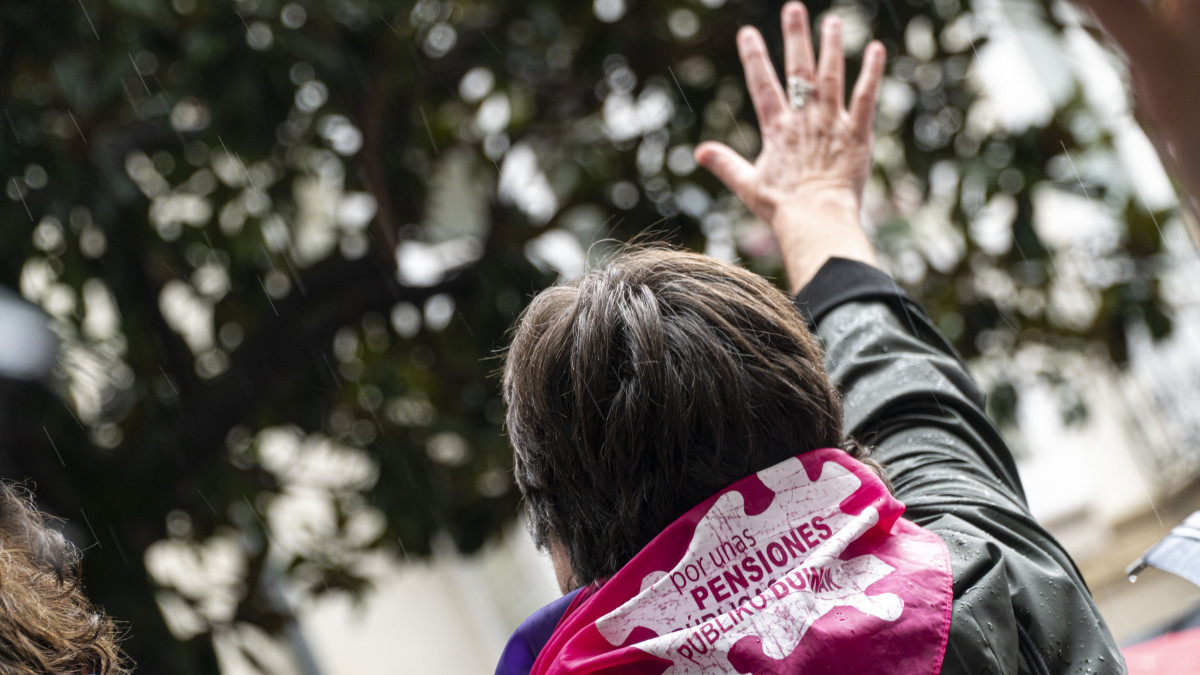


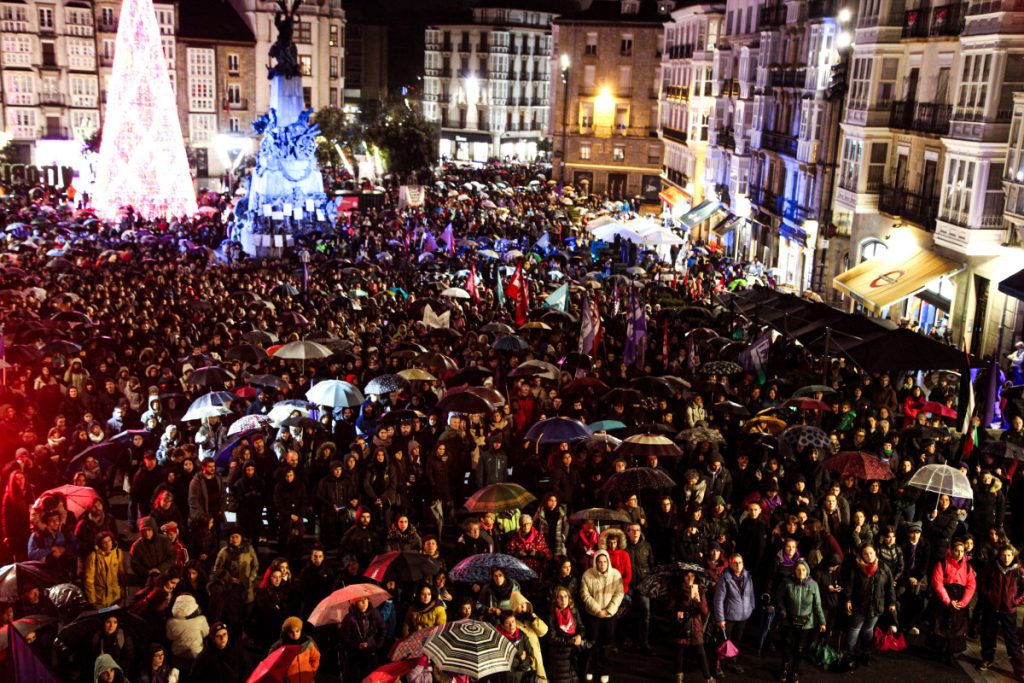
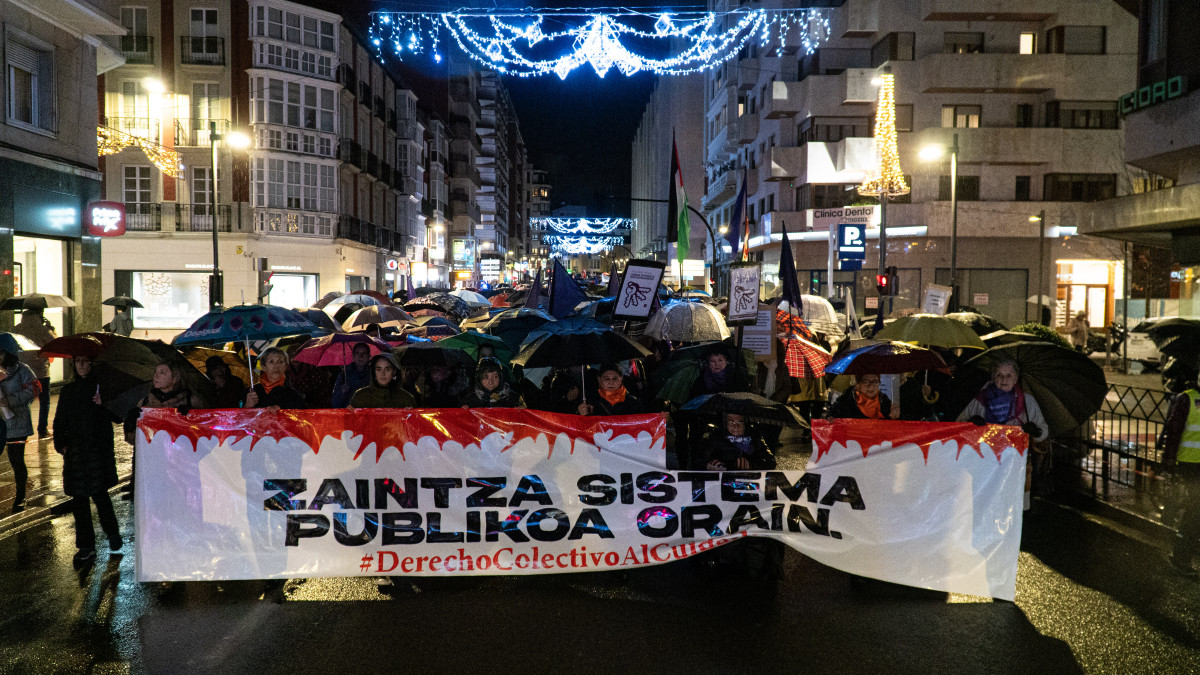 [+]
[+]